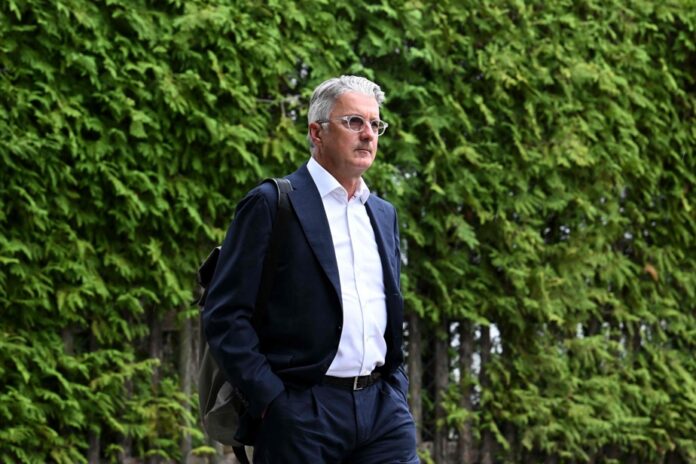(Munich) The former CEO of Audi, the first leader of the Volkswagen group tried in the Dieselgate affair, received a suspended prison sentence on Tuesday in Germany thanks to late confessions about his role in the global scandal. rigged diesel engines.
Rupert Stadler, former boss of the firm with the rings between 2007 and 2018, a subsidiary of Volkswagen, was sentenced to 21 months in prison suspended as well as a fine of 1.1 million euros by the regional court of Munich which had been judging him since September 2020.
Dressed in a dark blue suit and an open-collared white shirt, Mr. Stadler showed no reaction to his sentencing.
The 60-year-old executive had “no later than” in July 2016 “established knowledge” of the installation of illegal software on Audi and VW brand models, but without having taken the “necessary measures” to stop their marketing , detailed judge Stefan Weickert during the reading of the judgment.
The former leader had always disputed the alleged facts before agreeing, in May, to make a full confession on the offense of fraud by omission which he was accused of, on the proposal of the court. He was thus able to avoid a sentence that could reach up to ten years in prison. He had served 4 months in pre-trial detention in 2018.
The “Dieselgate” caused a worldwide scandal and heavily damaged the reputation of the German automobile industry.
In 2015, following accusations from the US Environmental Agency (EPA), Volkswagen admitted to having equipped 11 million “EA 189” type engines on its diesel vehicles with software capable of making them appear less polluting in lab tests and on the road.
Two of Mr. Stadler’s co-defendants, a former technical director at Audi and Porsche, Wolfgang Hatz, and his right-hand man at Audi, Giovanni Pamio, confessed during the trial to having manipulated vehicle engines so that the legal values of exhaust gases are respected during the tests, but not on the road.
They were sentenced on Tuesday respectively to two years in prison suspended with a fine of 400,000 euros for the first and 21 months in prison suspended with a fine of 50,000 euros for the second.
The trial will have required “more than 170 days of hearing” with “more than 190 witnesses heard and more than 1400 documents read”, detailed Laurent Lafleur, spokesman for the court.
However, the guilty plea procedure and the relative leniency of the sentences proposed by the court have aroused criticism in Germany.
“A gigantic economic scandal, millions of customers deceived worldwide, billions of euros in fines for the company – and the only senior executive tried so far gets off with such a lenient sentence? “, had carried away the daily Süddeutsche Zeitung.
Rupert Stadler’s compensation was around 5 million euros in 2017, before his ousting, according to Volkswagen’s annual report. Mr. Stadler caused damage of up to 41 million euros, corresponding to the wrongful marketing of some 17,000 vehicles between 2016 and 2018, according to the judgment.
The Volkswagen group has since had to pay more than 30 billion euros in reimbursements, damages and legal costs, the largest of which in the United States. Mr. Stadler had agreed in 2021 with Volkswagen to waive certain bonuses, thus paying 4.1 million euros in damages to the group.
The lawsuit also leaves unanswered questions: Who initiated the fraud? What other Volkswagen executives knew about and let the fraud continue?
Four former Volkswagen officials, accused of fraud, have been on trial since 2021 in the Brunswick court, not far from the manufacturer’s historic headquarters.
Hearings are scheduled until 2024, but still without the main defendant, the former CEO of the first European manufacturer at the time of the scandal, Martin Winterkorn, excused from trial on medical grounds.
Investors are also claiming legal compensation, while the title of VW had collapsed by some 40% in the days following the outbreak of the scandal.
Other legal aspects remain open, such as in France where the Paris Court of Appeal confirmed in March the indictment for aggravated deception of Volkswagen, alongside the manufacturers Renault, Peugeot, Citroën and Fiat-Chrysler.















